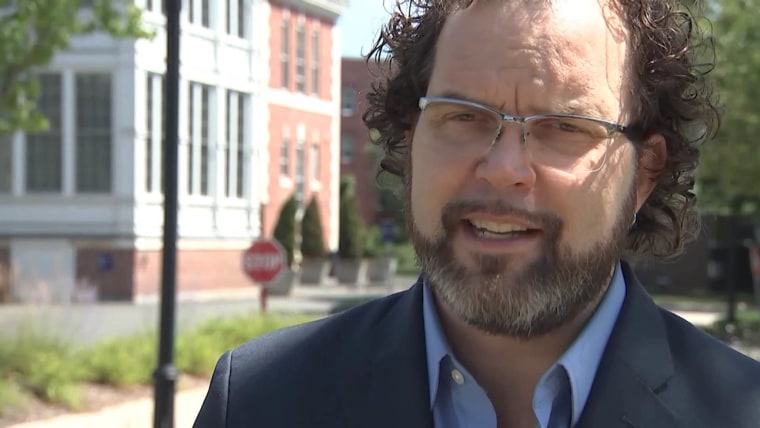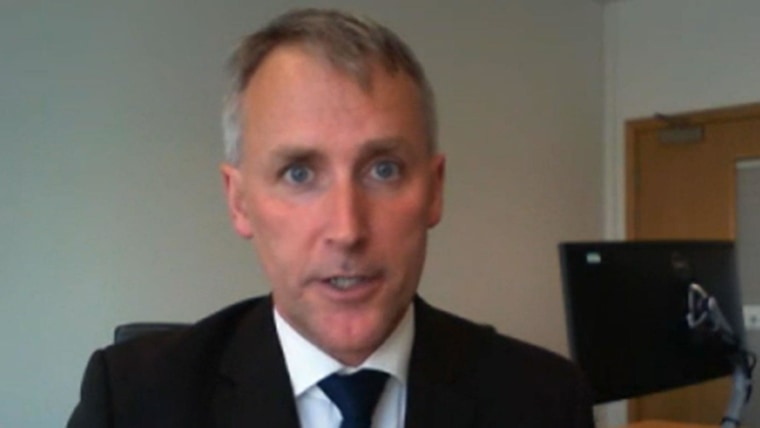LONDON — The United States and its allies have painted it as Russian-backed cyber-thieves trying to pilfer the honest, hard work of Western scientists and disrupt collaborative efforts to solve the world’s COVID-19 crisis.
In reality, experts say the alleged hacks into coronavirus research are just a taste of the nationalistic vaccine struggle that is already brewing among democratic governments — a growing tension that will most likely get ugly once an immunization trial is successful.
“There is going to be a real scramble,” said Mukesh Kapila, a former adviser to the director-general of the World Health Organization. “I would be surprised if intelligence services in the Western world were not doing some spying, too — in fact, I would be disappointed.”
On Thursday the headlines were lurid and alarming. Hackers inside Russia’s intelligence services are trying to steal coronavirus vaccine research from the United States, the United Kingdom and Canada, according to a joint statement from the three countries. All three have invested hundreds of millions of dollars in leading vaccine candidates.
British Foreign Secretary Dominic Raab contrasted Russia’s “reckless behavior” with the transatlantic allies, who were “getting on with the hard work of finding a vaccine and protecting global health.”
The U.K. has made much of its participation in altruistic efforts to fund and distribute any viable inoculating jab. Coordinated by the WHO, a number of countries have already pooled billions of dollars to develop coronavirus vaccines and distribute them “fairly and equitably” around the world.
But many experts remain deeply skeptical. Governments across the globe have yet to agree on exactly what fair and equitable actually means, and how it will work in practice. Many outside observers suspect that, when it comes to the crunch, any government whose scientists find the winning formula is unlikely to provide others with significant resources if it means their own people getting less.
“Plans remain plans, and only 10 percent of the projected money has been promised,” David Salisbury, a former British director of immunization, said of the WHO’s fundraising initiative.
Moscow has not signed up to the WHO collaborative plan — but neither has Washington. The U.S. has openly objected to these vaccine-sharing efforts, telling the WHO assembly in May that the language used would “send the wrong message to innovators” in terms of the intellectual property of these drugs.
That stoked fears that a new “vaccine nationalism” was brewing, which only increased after the U.S. snapped up 90 percent of the July production of remdesivir, a COVID-19 antiviral made by the American pharma giant Gilead.
There is precedent here. During the 2009 swine flu pandemic, wealthy countries put in advanced vaccine orders, crowding out poorer countries that had to wait longer to get access.
“I’m afraid that it is the job of every country to first look after its own population. That’s the fundamental political contract between a government and its people,” said Kapila, whose three-decade career includes senior positions in the British government and a host of U.N. agencies. “It will be a competitive process. And I’m afraid the weaker and poorer countries will be last in line.”
The head of the U.K.’s National Cyber Security Centre, , said Russia’s alleged hack was “deplorable” but didn’t surprise him. “We’ve been used to malevolent cyberactivity for some years,” he told NBC News, adding that the fact that vaccine efforts were targeted merely highlighted “the greater importance in health care and health assets at this time in history.”
Like with every such allegation in recent years, Russia denied it was responsible for hacking Western coronavirus research.
Moscow said that not only does it have its own vaccine trials in process, but it had already agreed to a deal with the U.K. to manufacture the very vaccine it was accused of trying to steal.
“There’s nothing that needs to be stolen,” Kirill Dmitriev, head of the Russian Direct Investment Fund, told Reuters. “It’s all going to be given to Russia.”
Even if Russia was behind the attack, some experts said it was not clear what Moscow hoped to gain.
“I see little point in it,” Salisbury, who is now an associate fellow at London’s Chatham House think tank, said. “Everyone is publishing so much detail so fast that there is little to gain by hacking.”
In any case, there are plenty in the U.S. and elsewhere who are neither surprised nor perturbed by the hacking allegations.
“I don’t have a problem with *any* country trying to save the lives of their populace by gaining access to vaccine research in order to get to a solution for this crisis sooner,” tweeted Dmitri Alperovitch, co-founder of the California-based cybersecurity firm CrowdStrike. “I would certainly hope and expect the U.S. intelligence to be doing the same right now.”
Michele Neubert contributed.














